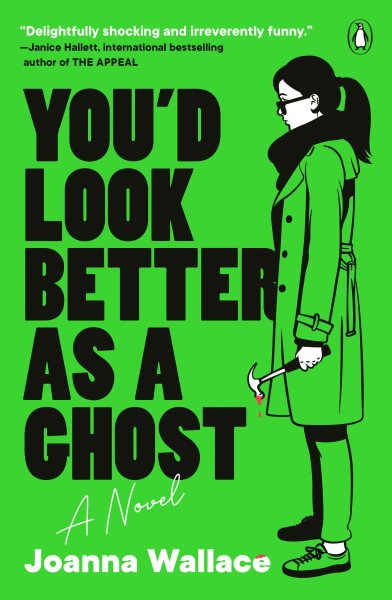
Agatha Christie
Originally Published 1944
I have always been intrigued by Ancient Egypt ever since I saw a sarcophagus and set of canopic jars as a child. Lately I have been rekindling that interest while playing Assassin’s Creed Origins and it occurred to me that it would be nice to read a detective novel set in that historical period.
It just so happened that I have been undertaking a project to read through all of Agatha Christie’s standalone mystery novels so I had little difficulty in settling on a title. Death Comes as the End was written in response to a suggestion from a family friend, the archaeologist Stephen Glanville.
The novel stands out for a couple of reasons but its biggest claim to fame is that it is Christie’s only historical mystery. While some reviews assert that it is a ‘typical Christie country house mystery’ that has been given a little Egyptian set dressing, I think such views ignore much of the thematic content of the novel and, in particular, its discussion of Egyptian views of death.
The book centers around an Egyptian family. The father, Imhotep, is away on business and has left his adult sons to manage his estate. When he returns he brings with him a much younger woman, Nofret, who he installs as his concubine. Soon the family realize that the operations of the household are changing to her whims and they worry that they are being disregarded.
An attempt to bully her into submission backfires horribly when she sends a message to Imhotep who is travelling again to tell him about his children’s behavior towards her. His response is to threaten to disinherit his sons and cast them out. Before he returns to make good on that threat, Nofret is found dead at the foot of a cliff. This does not end the drama however and soon the bodies are mounting up.
The body count here is certainly impressive and I think the comparisons some readers make to And Then There Were None are understandable. As with that book, the body count provides a sense of growing tension and impending doom that proves really effective and while there may have been relatively few suspects left standing at the end, I still failed to figure out the killer’s identity.
I also think that it is worth stressing what a good job Christie does of finding a convincing way to tell a mystery story set in the ancient world that still retains all of the hallmarks of her writing. Death Comes as the End is a psychological crime novel, even if it takes place a few millennia before that word was used. Our characters have no forensic science or independent witnesses to rely on. They have to utilize their own intuition and observation to understand the personalities within the house and to identify who would have killed and why.
One of the most impressive things about the novel is the balance she is able to find between the historical and cultural details and the details of the plot. This is a tricky thing for a writer to gauge and I have certainly read many novels by writers who specialize in historical mysteries that fail to keep those elements in balance.
I mentioned earlier that I think this book does a good job of reflecting aspects of Ancient Egyptian society and spiritualism. While some of the plot points could clearly take place in any period of history, the way those events are interpreted could not. This principally can be seen in one of the character’s musings on the relationship between life and death but I think some seemingly supernatural events are also taken more seriously by the cast of characters than they ever would be if the action took place in a contemporary setting.
While I found the book to be an impressive and enjoyable read, I do think there are a few issues. The biggest of these is that I am not sure the reader could reach the killer’s identity through logical deduction. Though there is certainly plenty of information that suggests who is responsible, this is not the sort of case where the attentive reader could only reconcile the clues in one way. Instead the killer really just reveals themselves at the end. Personally I enjoyed the ride and being uncertain of quite how it would all be resolved but your mileage may vary.
The other thing that I think didn’t quite work was the attempt at a romantic subplot. Wikipedia would have me believe that the ending was forced on Christie and later a subject of regret, though I couldn’t easily find out what her preferred ending would have been, and I do wonder if this was one of those elements that she was forced to include. While this is not the only Christie novel that features an attempt to bring a restoration of order with a romantic subplot, I am not sure that it fits with the otherwise bleak tone of the later chapters.
In spite of these less satisfying elements of the novel, overall I found Death Comes as the End to be a very enjoyable and entertaining read. I think it conjures up a strong sense of place and culture and though I think it may disappoint a little as a detective story, I felt gripped by the way it unfolded.
Finally, if anyone has an Egyptian mystery novel they’d like to recommend to me I’d love to hear your suggestions…
Vintage Mysteries Challenge: A historical crime (When)




Leave a comment